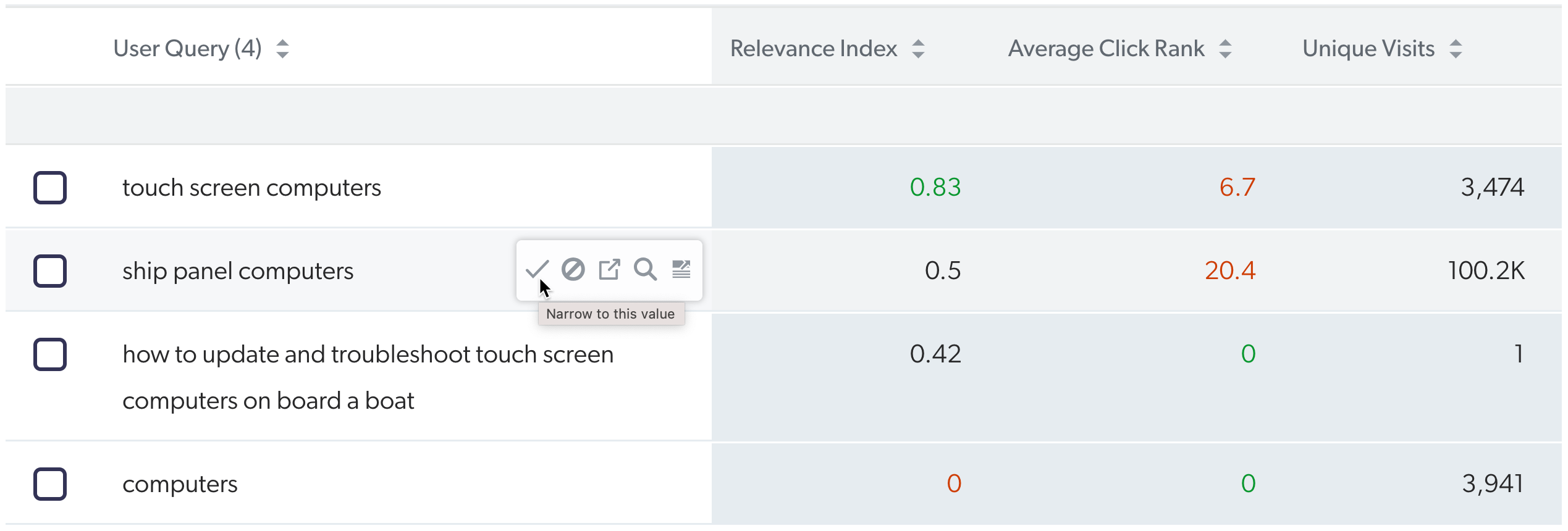Identify relevance issues
Identify relevance issues
You can tune search result relevance with Coveo by analyzing the queries, keywords, and clicked items to identify the top occurrences with clicks on items that don’t appear at the top of the search results list. Identifying items that are poorly ranked for frequent queries helps you focus on important relevance issues to fix.
To identify relevance issues
-
On the Reports (platform-ca | platform-eu | platform-au) page of the Coveo Administration Console, click the Search Relevance explorer, and then click Open in the Action bar.
By default, the Relevance Index and Average Click Rank metrics are shown in the data table.
-
Sort the table with ascending Relevance Index metric values to highlight the most important relevance issues.
NoteSimilarly, you can sort the table with descending Average Click Rank metric values to highlight cases where items were opened far in the list of search results. However, unlike the Relevance Index, the Average Click Rank metric doesn’t consider the frequency of the measured event. Consequently, events with the highest Average Click Rank values (particularly those higher than 3), are sometimes for events that occurred only once or just a few times.
-
Get more details on a user query:
-
In the table, bring the cursor on a user query with a low Relevance Index value that you would like to investigate.
-
In the table cell, click
that appears next to the query to automatically create a filter to drill down into this query.
ExampleYou want to look into more details relative to the
ship panel computersquery that has the lowest Relevance Index value.
The filter appears on the top bar.

-
-
In the table, add the Search Result (click) or the Document Title (click) dimension (depending on your organization settings) to see which items were opened by visitors performing this query.
-
Look at the items with the lowest Relevance Index values (particularly those lower than 0.50) with the following questions in mind:
-
Are the item titles good for this query?
-
Are titles misleading?
-
Should some keywords of the query be added to the item title or content?
-
-
In the search interface, perform the query and look at the search results with the following questions in mind:
-
Does the ranking look good?
-
Are there any clear issues with the item titles?
-
Are the search words emphasized in the item?
-
Are people using different keywords to search for this item?
-
-
Consider using the following methods to improve ranking:
-
Add synonyms to better match terms used by visitors with terms used in the indexed content (see Manage thesaurus rules).
-
Add stop words to ignore in queries to improve relevance (see Manage stop word rules).
-
Change the weights of a ranking factor (see Manage ranking weight rules).
NoteA developer can also customize search interfaces to influence ranking using various methods:
-